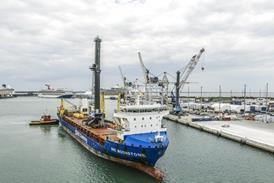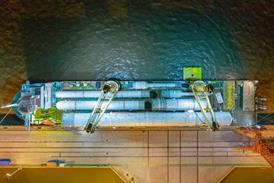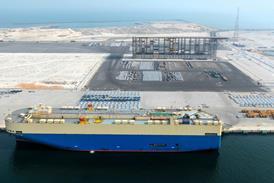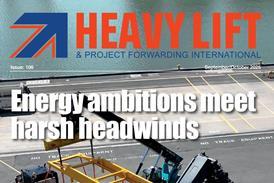Belgian engineered transport provider and heavy lift specialist Sarens has bolstered its fleet in order to handle wind turbine components for ACWA Power’s 1 GW wind power project in Bukhara, Uzbekistan.
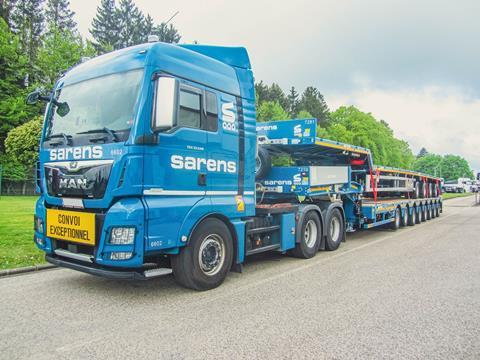
The components have to be transported from the border of China to Bukhara via Kazakhstan. 158 sets of turbine generator sections, four transformers, and special lifting tools have to be delivered within 18 months. Each wind turbine generator set includes four tower sections with a maximum weight of 96 tonnes; three blade sections weighing 29 tonnes; a 44-tonne hub section; and a 129-tonne nacelle.
Given the magnitude of the project, Sarens has invested in its fleet. This includes the addition of: 25 Faymonville TeleMAX trailers for the blades; 32 Faymonville MultiMAX trailers for three of the tower sections, plus 11 additional Faymonville trailers units; and 32 Mercedes Benz Arocs 3358LS 6 x4 trucks with latest Euro-VI emission technology.
All trailers and trucks were delivered from Europe to Almaty, Kazakhstan, via road, sea, and railway in a 30-day timeframe – all in a ready-to-use condition. “A challenge we faced and addressed were the Custom requirements of three different countries: China, Kazakhstan, and Uzbekistan,” Sarens explained.
For the detailed route study and transportation planning, Sarens also invested in trailer-simulation software. The software helped the company to estimate the correct road modification cost, finding the most appropriate and shortest route, and trailer simulation on road turns.
According to project manager Elvira Kolenko: “Transporting the wind blades was very challenging for us. The 84 m-long blades along with the trailer and track length measured around 105 m.”
Almost 50 000 sq m of civil ground preparation was completed, including the modification of road turns and bypasses, the widening of road sections, as well as the removal and relocation of more than 60 light poles, wire cables and road sign boards.
Sarens will perform approximately 1,422 round trips, each covering 3,800 km, to complete the project, which is scheduled to come to close by October 2024.

